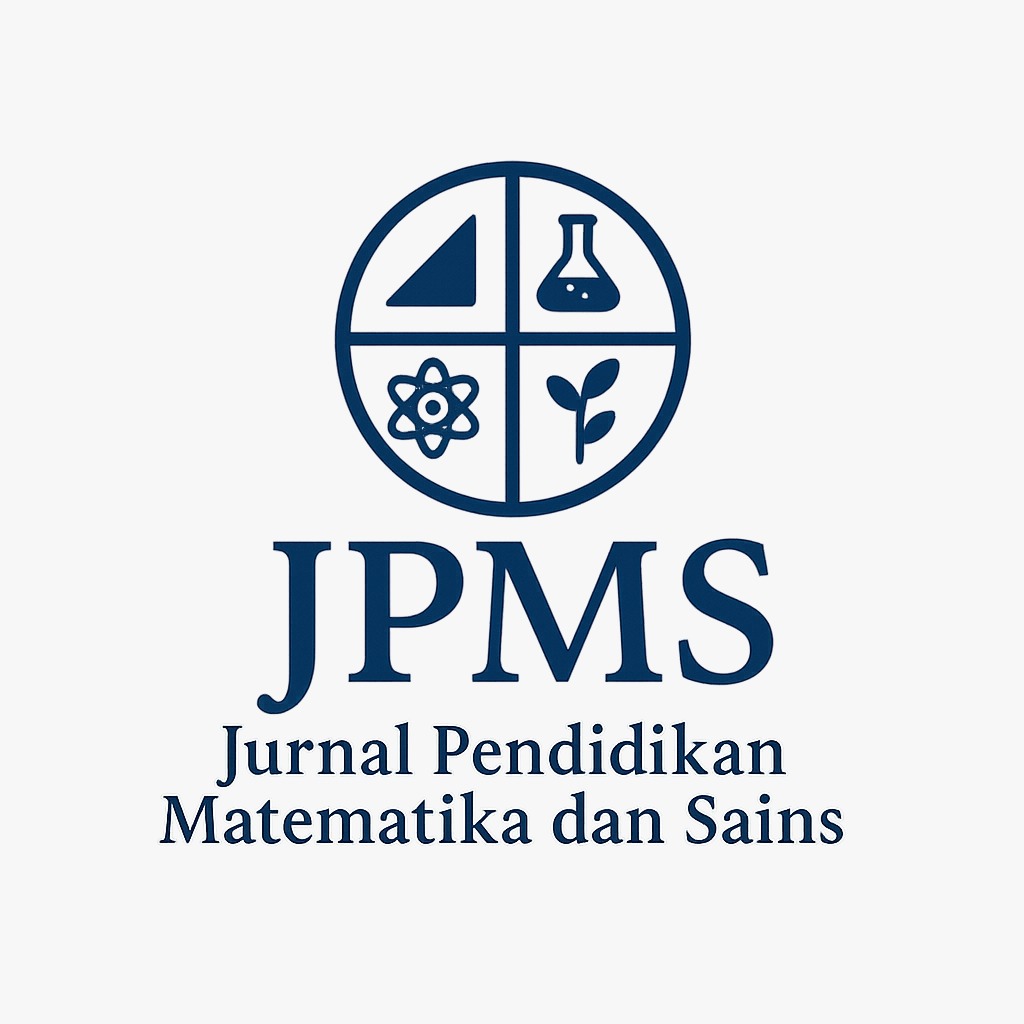Perbandingan keefektifan model project-based learning dan problem-based learning ditinjau dari ketercapaian tujuan pembelajaran
DOI:
https://doi.org/10.21831/jpms.v5i1.13469Keywords:
Project-Based Learning, Problem-Based Learning, prestasi belajar, kemampuan pemecahan masalah, minat belajar matematikaAbstract
Penelitian ini bertujuan untuk mendeskripsikan keefektifan model Project-Based Learning dan Problem-Based Learning, serta komparasi keefektifan antara model Project-Based Learning dan Problem-Based Learning ditinjau dari prestasi belajar, kemampuan pemecahan masalah, dan minat belajar matematika siswa SMA Kelas XI. Penelitian ini merupakan penelitian eksperimen semu dengan desain pretest-posttest nonequivalent group design. Populasi dalam penelitian ini adalah seluruh siswa kelas XI IPA SMANegeri 2 Kuningan. Sampel penelitian sebanyak dua kelas yang dipilih secara acak. Data hasil penelitian dianalisis dengan MANOVA, dan untuk mengetahui keefektifan model Project-Based Learningdan model Problem-Based Learningmenggunakan uji one sample t-test. Hasil penelitian menunjukkan bahwa model Project-Based Learning dan Problem-Based Learningefektif ditinjau dari minat belajar matematika tetapi tidak efektif ditinjau dari prestasi belajar dan kemampuan pemecahan masalah matematika siswa kelas XI SMA. Tidak terdapat perbedaan keefektifan antara model Project-Based Learning dan Problem-Based Learningditinjau dari prestasi belajar, kemampuan pemecahan masalah, dan minat belajar matematika siswa kelas XI SMA.
Kata kunci: Project-Based Learning, Problem-Based Learning, prestasi belajar, kemampuan pemecahan masalah, minat belajar matematika
The Effectiveness Comparison of Project-Based Learning and Problem-Based Learning Models in Terms of Achievement of Student's Learning Objectives
Abstract
This study aimed to describe the effectiveness of project-based learning and - problem-based learning models and to compare the effectiveness of project-based learning and problem-based learning models viewed from the learning achievement, problem solving ability, and interest in learning mathematics of grade XI students of senior high school. This study was a quasi-experiment study employing the pretest-posttest nonequivalent group design. The population comprised all grade XI science students of SMA Negeri 2 Kuningan. The sample consisted of two classes that were randomly established. The data were analysed by means of MANOVA, and to test the effectiveness of the project-based learning and problem-based learning models, the one sample t-test was used. The results of the study showed that the project-based learning and problem-based learning models were effective viewed from the interest in learning mathematics, but not effective viewed from the learning achievement and problem solving ability of grade XI students of senior high school. There was no difference of effectiveness of project-based learning model and problem-based learning model viewed from the learning achievement, problem solving ability, and interest in learning mathematics of grade XI students of senior high school.
Keywords: project-based learning, problem-based learning, learning achievement, problem solving ability, interest in learning mathematics.
References
Abu, A. (2011). Perbandingan keefektifan pembelajaran berbasis masalah dan pembelajaran kooperatif tipe STAD ditinjau dari kemampuan pemecahan masalah dan motivasi belajar pada pelajaran matematika SMA. Tesis Magister, tidak diterbitkan, Universitas Negeri Yogyakarta, Yogyakarta.
Akinoglu, O., & Tandogan, R. O. (2007). The effects of problem-based learning in science education on students' academic achievement, attitude and concept learning. Eurasia Journal of Mathematics, Science & Technology Education. 3, 1, 71-81.
Altun, S. Y., Turgut, U. & Buyukkasap, E. (2009). The effect of project based learning on science undergraduates' learning of electricity, attitude towards physics and scientific process skills. International Online Journal of Educational Science, 1, 1, 81-105.
Bas, G. (2011). Investigating the effects ofproject-based learning on students academic achievement and attitudes towards english lesson. TheOnlineJournalofNewHorizonsinEducation,1(4):1-15.Diambil pada tanggal 18 Agustus 2014 darihttp://www.tojned.net
Cheong, F. (2008). Using a problem-based learning approach to teach an intelligent systems course. Journal of Information Technology Education. 7, 47-60.
Clark, A. (2009). Problem solving in singapore math. Diambil pada tanggal 29 Desember 2014, dari http://www.sau39.org/cms/lib07/NH01912488/Centricity/Domain/244/MIF%20Problem%20Solving.pdf.
Clark, A. (2009). Problem solving in singapore math. Diambil pada tanggal 29 Desember 2014, dari http://www.sau39.org/cms/lib07/NH01912488/Centricity/Domain/244/MIF%20Problem%20Solving.pdf.
Depdiknas. (2013). Laporan hasil ujian nasional SMA/MA. Jakarta: BSNP
Depdiknas. (2014). Laporan hasil ujian nasional SMA/MA. Jakarta: BSNP
Farhan, M. & Retnawati, H. (2014). Keefektifan PBL dan IBL ditinjau dari prestasi belajar, kemampuan representasi matematis, dan motivasi belajar. Jurnal Riset Pendidikan Matematika, 22 (1), 288-240
Hosnan, M. (2014). Pendekatan saintifik dan kontekstual dalam pembelajaran abad 21. Bogor: Penerbit Ghalia Indonesia.
Lianghuo, F., Seng, Q. K., & Yan, Z., et al. (2005). Assesing singapore student's attitude toward mathematics and mathematics learning: finding from a survey of lower. Diambil pada tanggal 13 Oktober 2014 dari https://repository.nie.edu.sg/bitstream/10497/3345/1/CRP24_03FLH_Conf05%28EARCOME%29_FanQuekZhuetal.pdf
Marsigit. (2007). Revitaliasi pendidikan matematika. Makalah disajikan dalam Seminar Inovasi Pendidikan Matematika di Universitas Negeri Surabaya.
Mergendoller, J. R., Maxwell, N. L., & Bellisimo, Y. (2006). The effectiveness of problem-based instruction: a comparative study of instructional methods and student characteristics. The Interdisciplinary Journal of Problem Based Learning. 1, 2, 49-69. Diambil pada tanggal 1 September 2014 dari, http://proquest.com
Mitchell, M. & Gilson, J. (1997). Interest and enxiety in mathematics. Diambil pada tanggal 12 Oktober 2014, dari http://www.eric.ed.gov/ERICWebPortal/search/detailmini.jps?_nfpb=true&_&ERICExtSearch_SearchValue_0=ED412116&ERICExtSearch_SearchType_0=no&accno=ED412116
Muijs, D., & Reynolds, D. (2008). Effective teaching teori dan aplikasi. (Terjemahan Helly Prajitno Soetjipto & Sri Mulyantini Soetjipto). London: SAGE Publications Ltd.
Nasional Council of Teacher of Mathematics. (2000). Principles and standards for school mathematics. Reston, VA: The National Council of Teacher of Mathematics, Inc.
Rusmono. (2012). Strategi pembelajaran dengan problem based learning itu perlu: untuk meningkatkan profesionalitas guru. Bogor: Penerbit Ghalia Indonesia.
Santyasa, I. W. (2006). Pembelajaran inovatif: model kolaboratif, basis proyek, dan orientasiNOS.MakalahdalamSeminarSekolahMenengah AtasNegeri2 Sermarapura.Bali.
Schoenfeld. A. H. (1992). Learning to think mathematically: problem solving, metacognition, and sense making in mathematics. Dalam D.A. Grouws (Eds). Handbook for Research on Mathematics Teaching and Learning. New York: MacMillan.
Slameto. (2010). Belajar dan faktor-faktor yang mempengaruhinya. Jakarta: Rineka Cipta.
Sobel, M. A. & Eva, M. M. (2004). Mengajar matematika: sebuah sumber alat peraga, aktivitas, dan strategi. Jakarta: Erlangga.
Stevens, J. (2009). Applied multivariate statistics for the social science (5thed.). New York. NY: Taylor & Francis Group.
Suherman,E. etal. (2003). Strategi pembelajaran matematika kontemporer. Bandung: FMIPA UPI.
Sunggur, S., & Tekkaya, C. (2006). Effect of problem-based learning and traditional instruction on self-regulated learning. The Journal of Educational Research. 99, 55, 307.
Turgut, H. (2008). Prospective science teachers conceptualizations about projectbasedlearning.InternationalJournalofInstruction,1(1):61-79. Diambil pada tanggal 18 Agustus 2014, darihttp://e-iji.net.
Warsono, & Hariyanto. (2013). Pembelajaran aktif. Bandung: PT Remaja Rosdakarya.
Yesildee, S.&Elif B. (2006). The Efffect of project based learning on pre-service primary mathematics teachers' critical thingking dispositions.Journal of Science and Math, 6, 1-11.
Downloads
Published
How to Cite
Issue
Section
Citation Check
License
Jurnal Pendidikan Matematika dan Sains allows readers to read, download, copy, distribute, print, search, or link to its articles' full texts and allows readers to use them for any other lawful purpose. The journal allows the author(s) to hold the copyright without restrictions. Finally, the journal allows the author(s) to retain publishing rights without restrictions
- Authors are allowed to archive their submitted article in an open access repository
- Authors are allowed to archive the final published article in an open access repository with an acknowledgment of its initial publication in this journal

This work is licensed under a Creative Commons Attribution-ShareAlike 4.0 Generic License.





